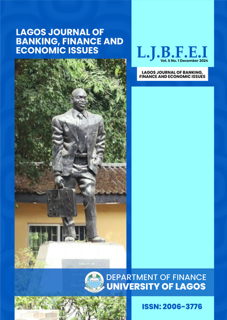ECONOMIC POLICY UNCERTAINTY AND REMITTANCE INFLOW IN SELECTED AFRICAN COUNTRIES.
Abstract
The study examines the asymmetric impact of Global economic Policy Uncertainty (GEPU) on remittance inflows in selected African countries. The study explores a Nonlinear Autoregressive Distribution Lag (NARDL) in achieving the objective. The study examines both the short-run and long run impacts of GEPU on remittance inflows. Yearly data were observed for the study across 17 African countries from 1997 to 2022. The result suggests that GEPU has a negative and significant impact on remittance inflow in the short run. Specifically, the negative partial sum has an impact on remittance inflow in the short run. Additionally, the long run does not suggest a significant impact on remittance except for the negative partial sum that is significant at 5% under the mean group. The outcomes suggest a symmetric relationship in the short run but an asymmetrical relationship in the long run based on the PMG model. The findings of the study enrich existing knowledge and understanding of the role of GEPU on remittance inflow. The outcome of the study will be of great value to policymakers, and various stakeholders, as they are actively involved in decision making and policy formulation on remittance inflows

